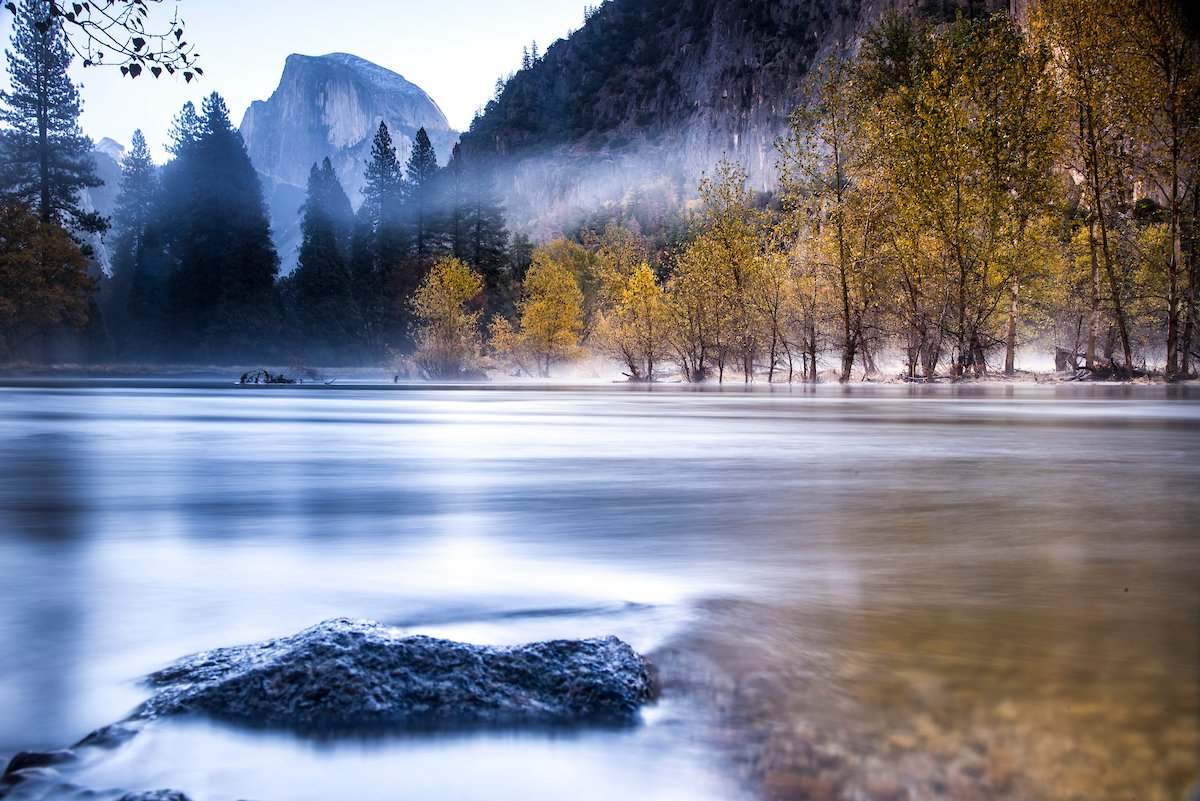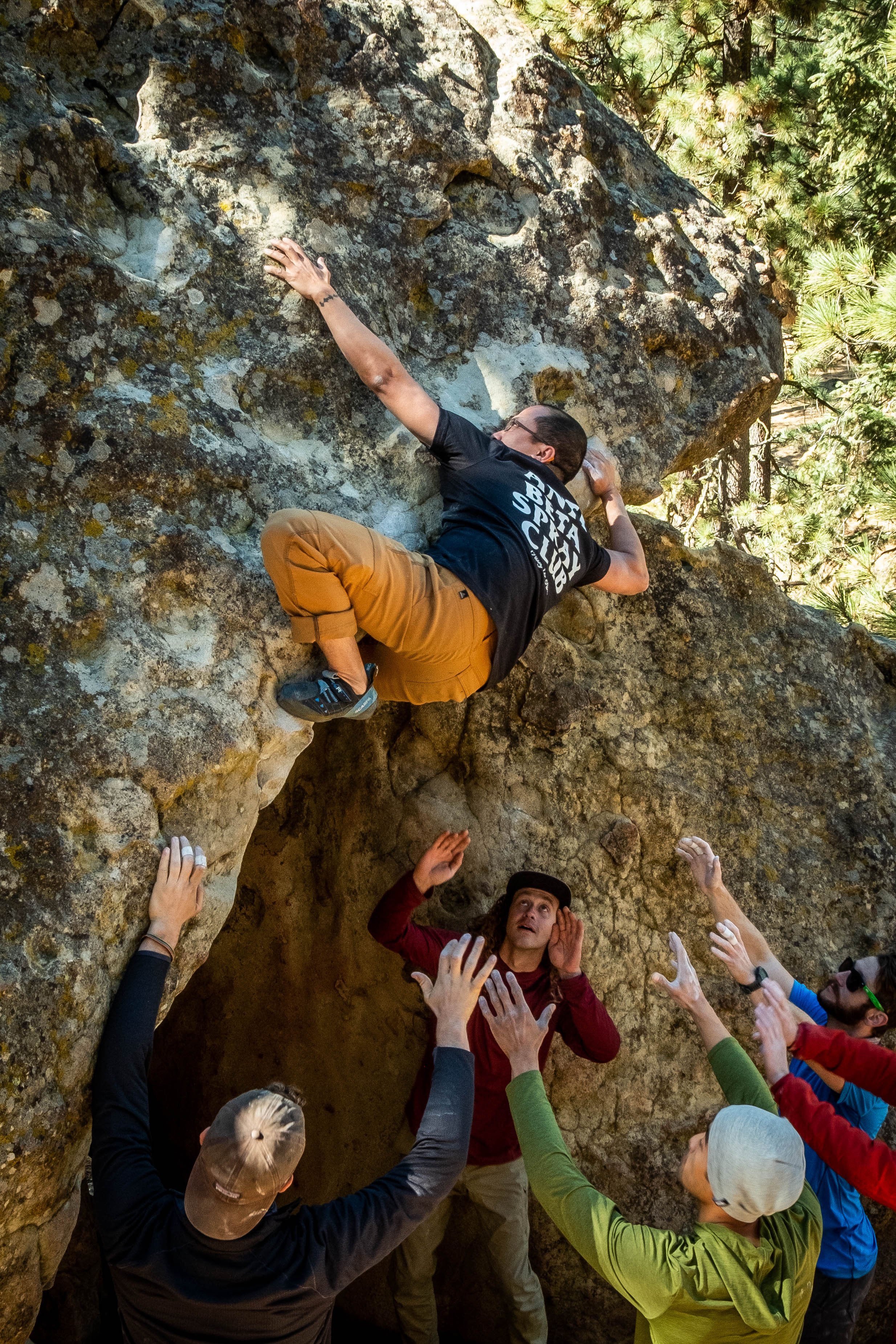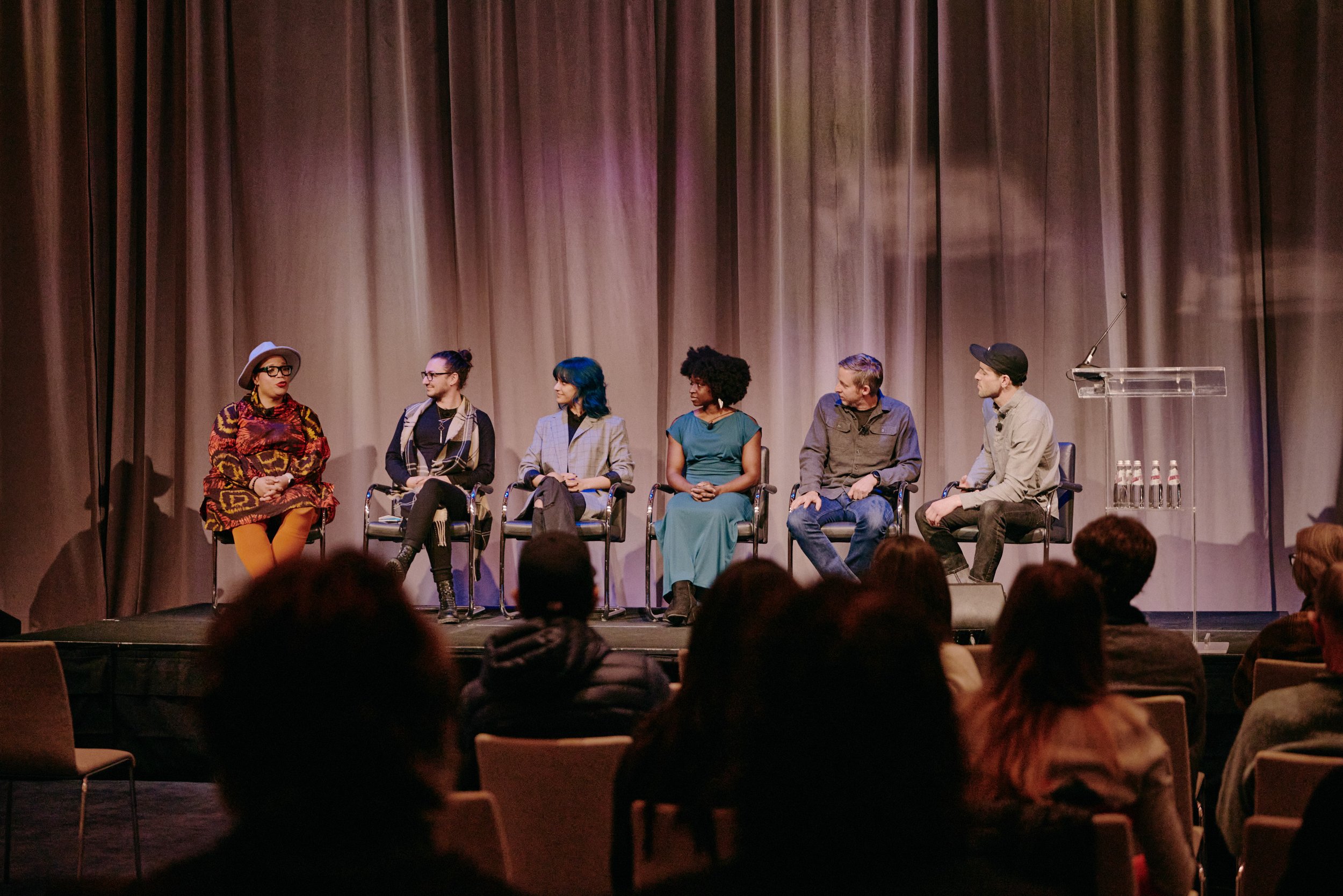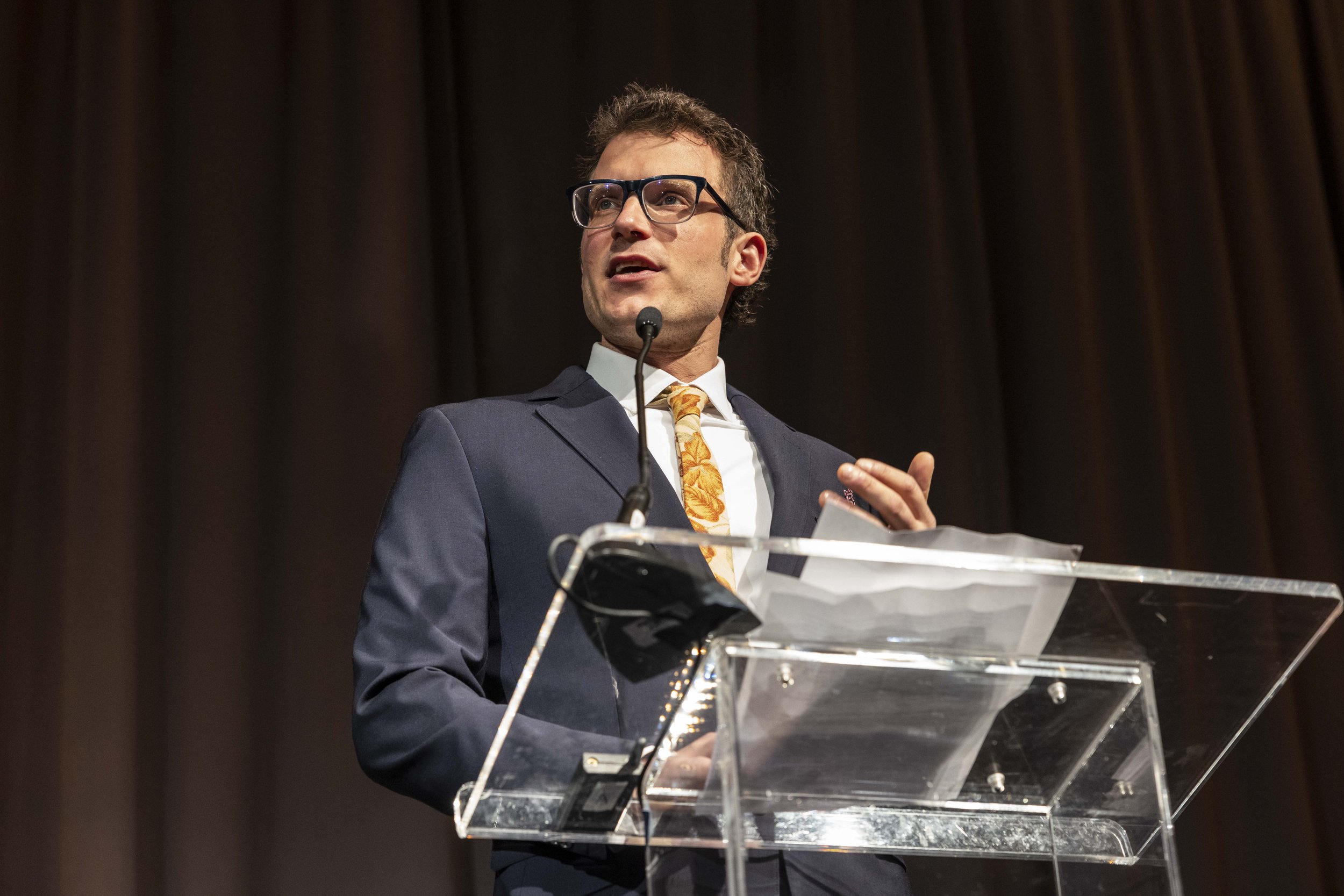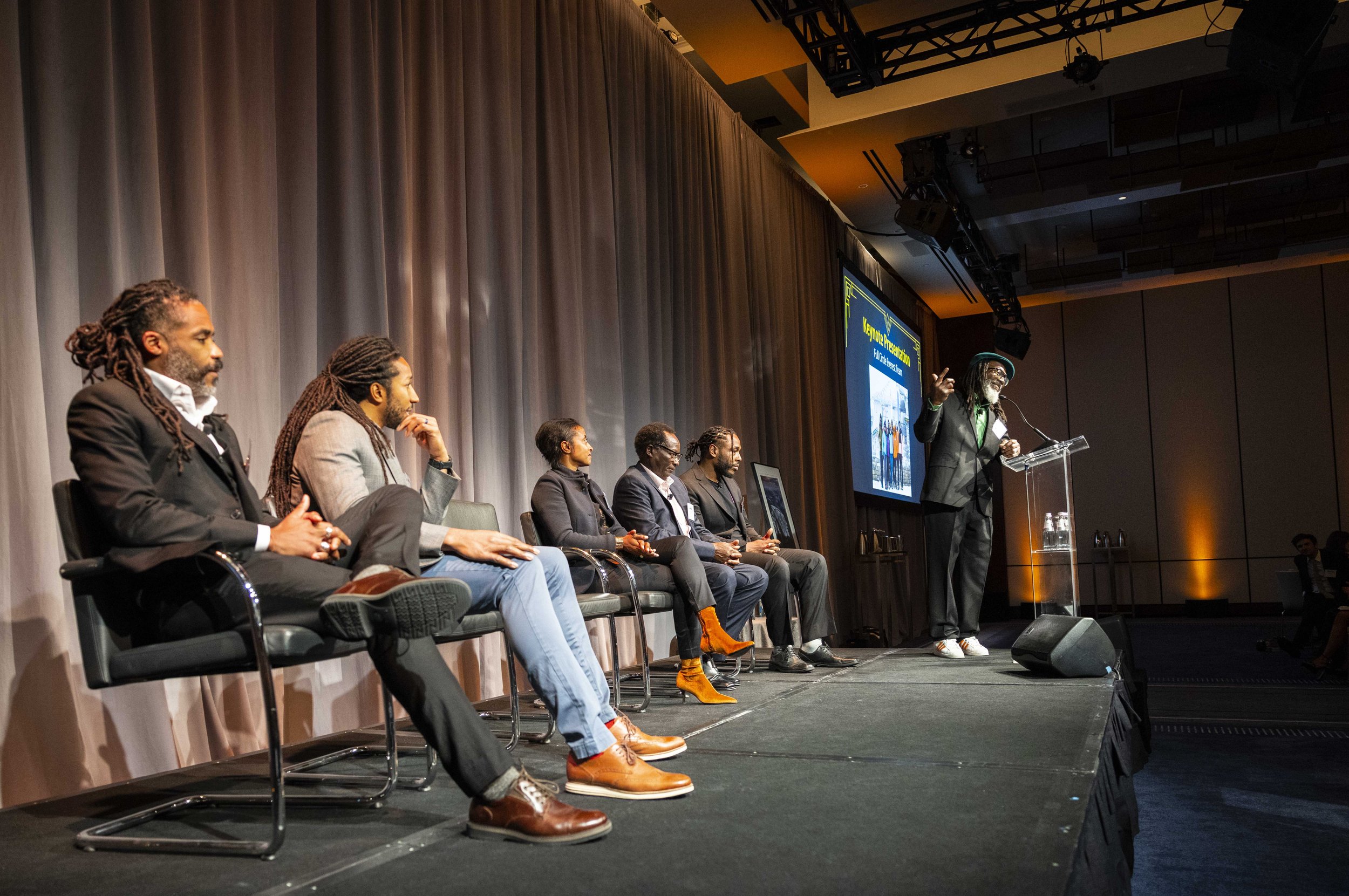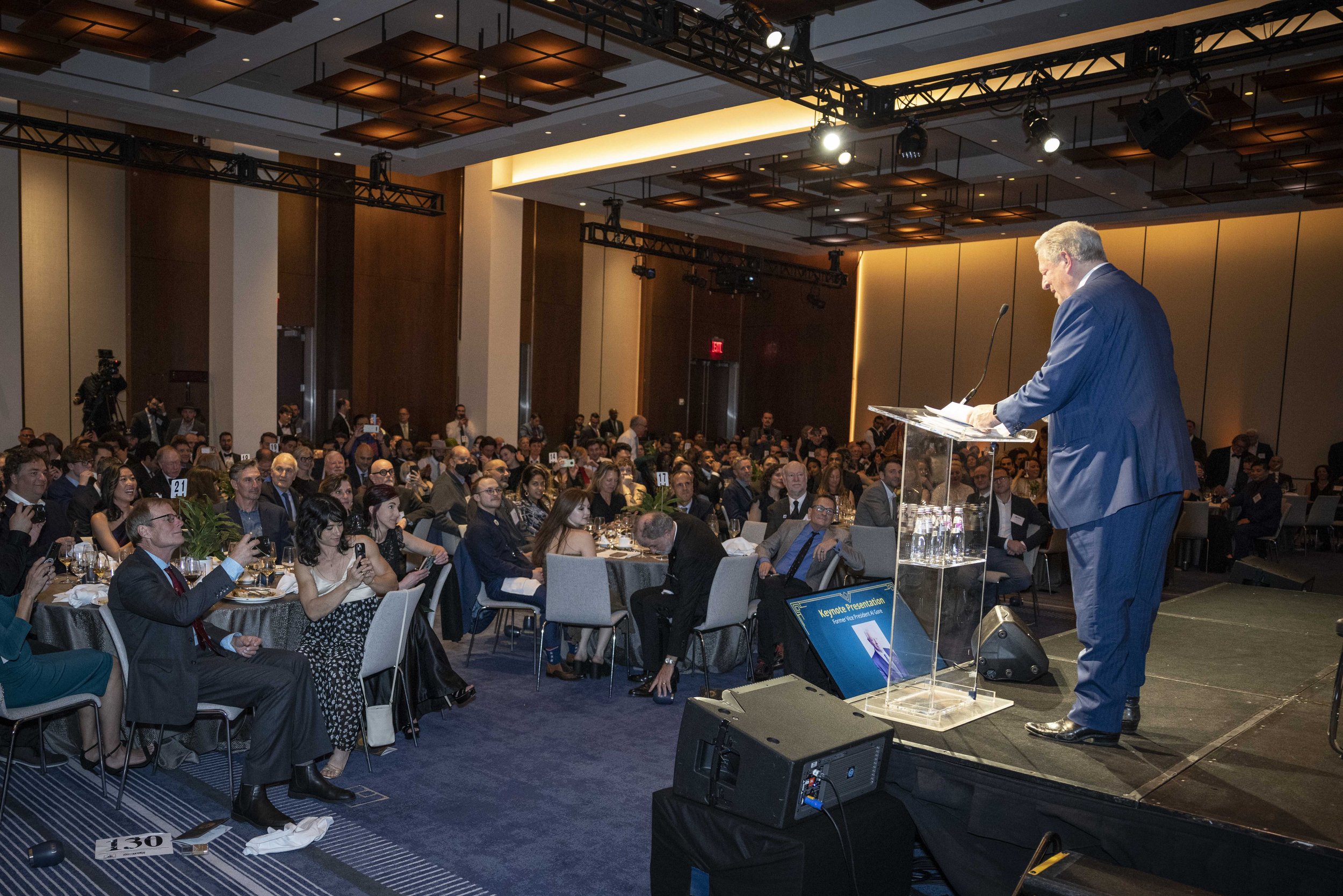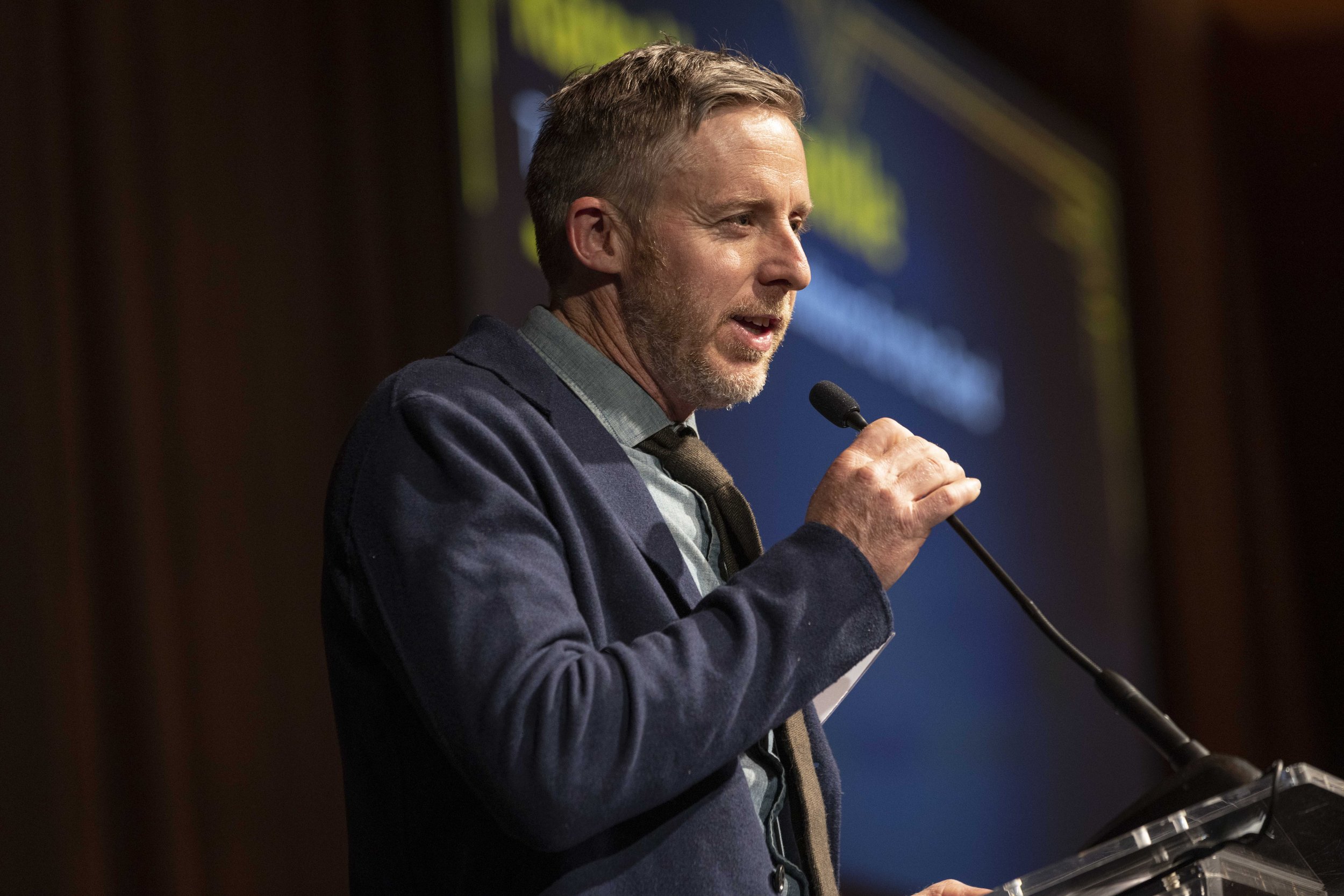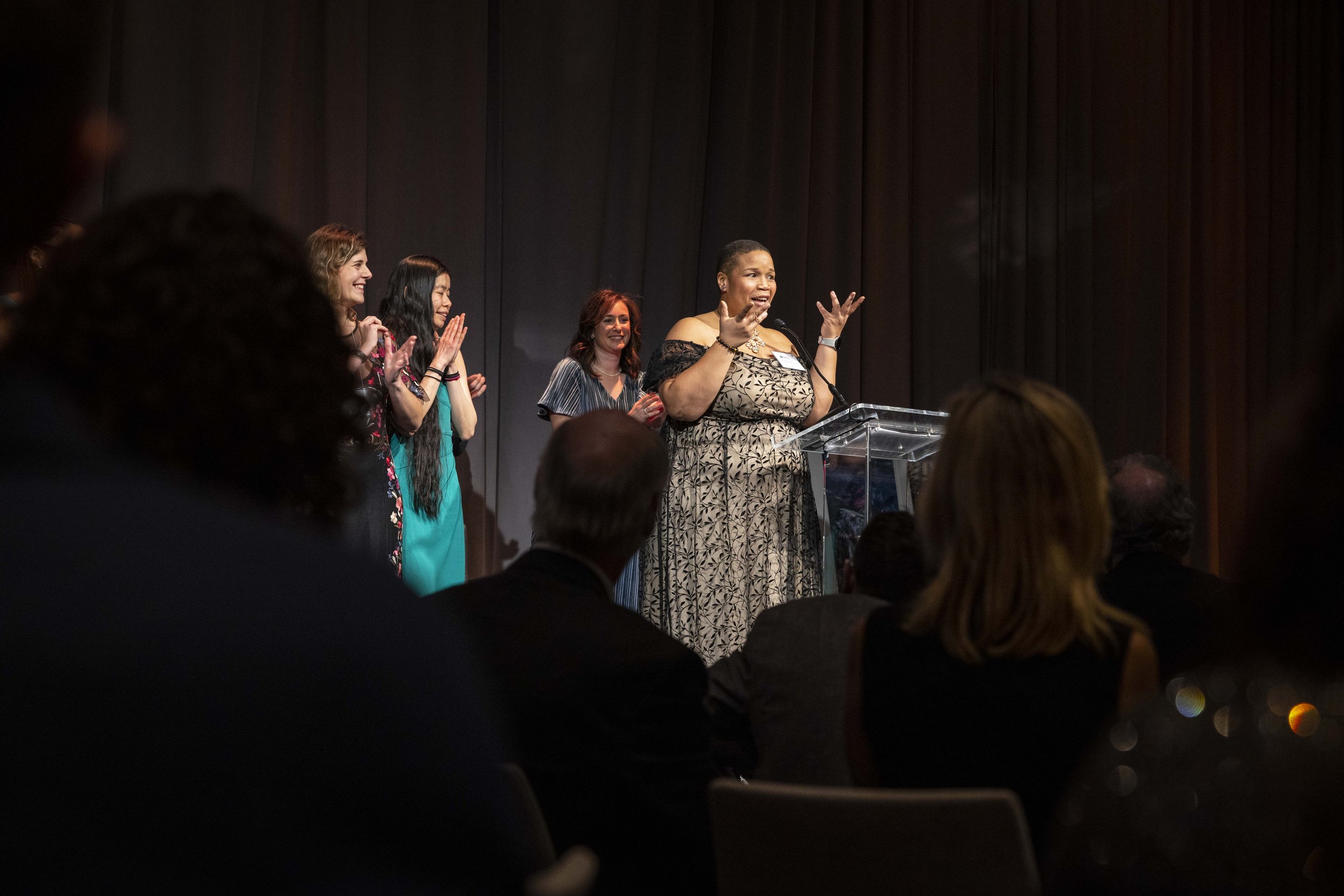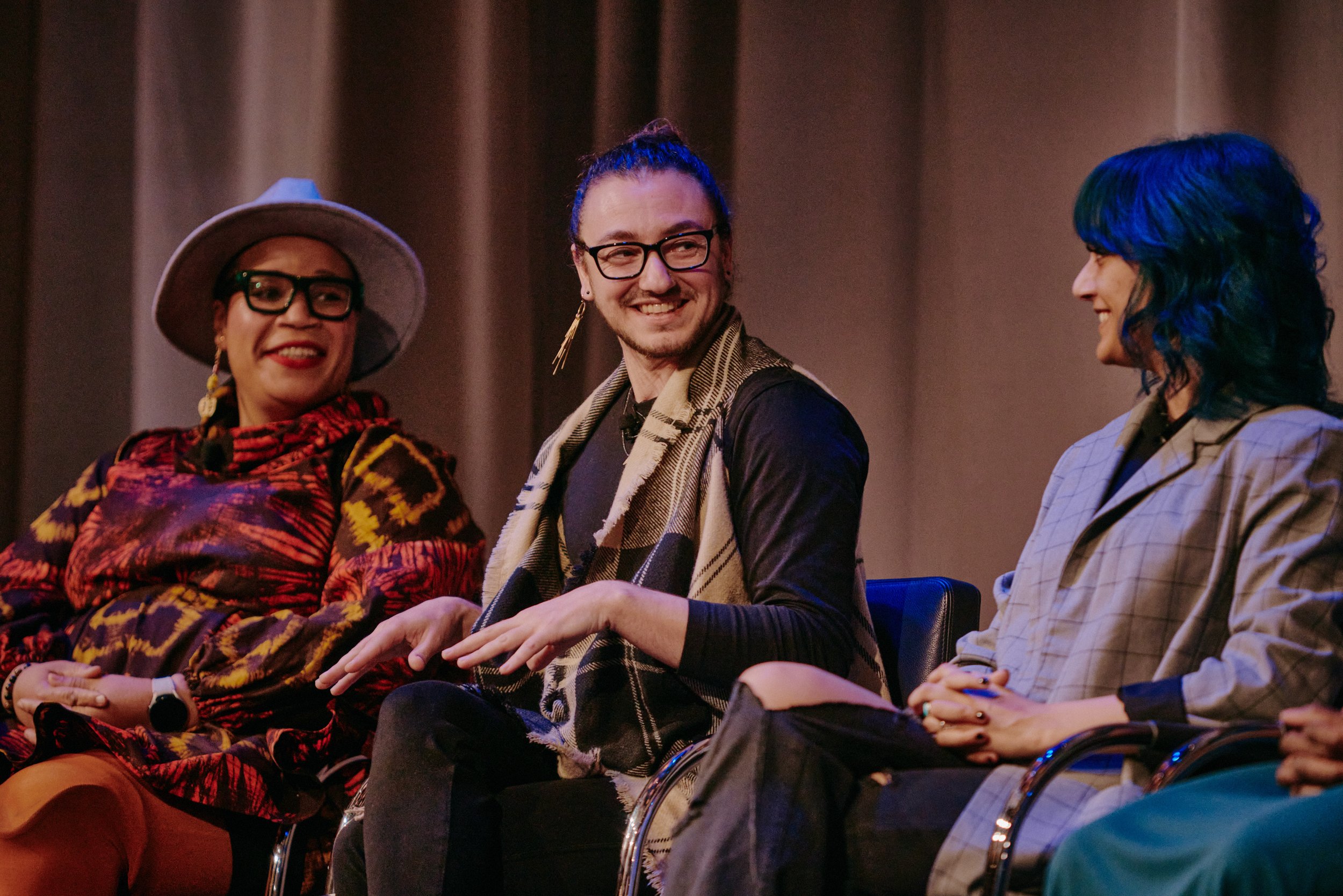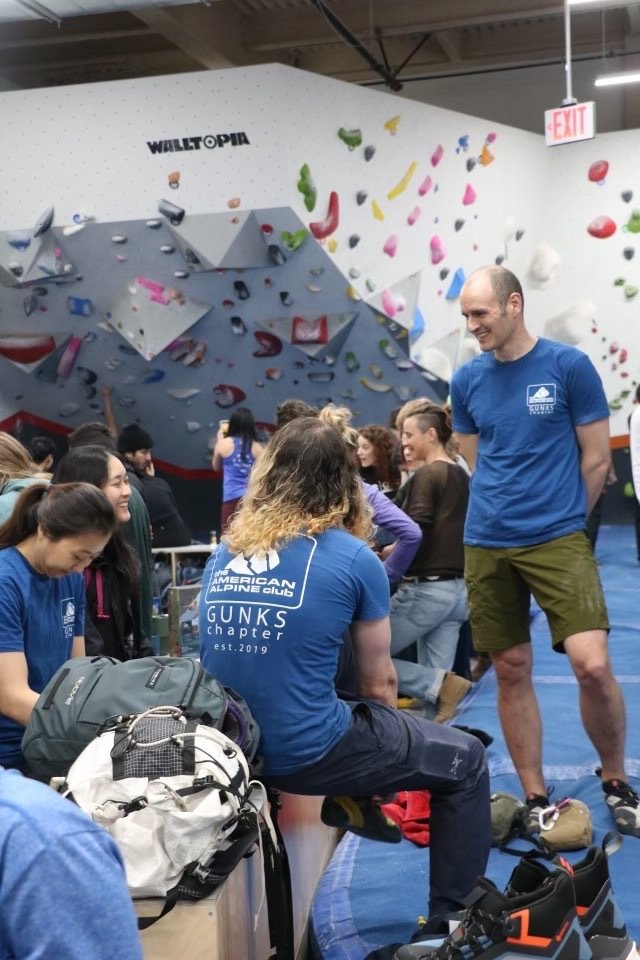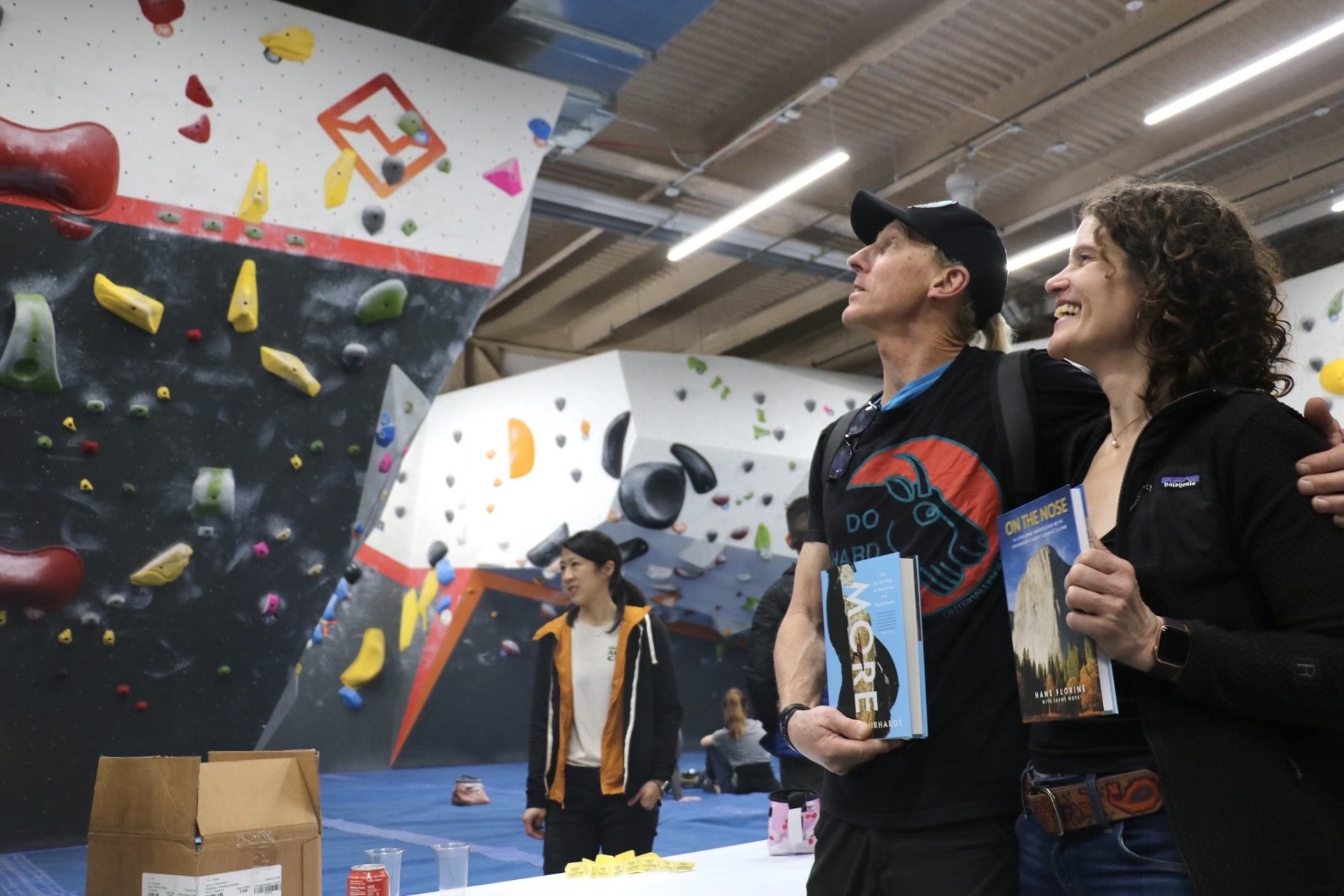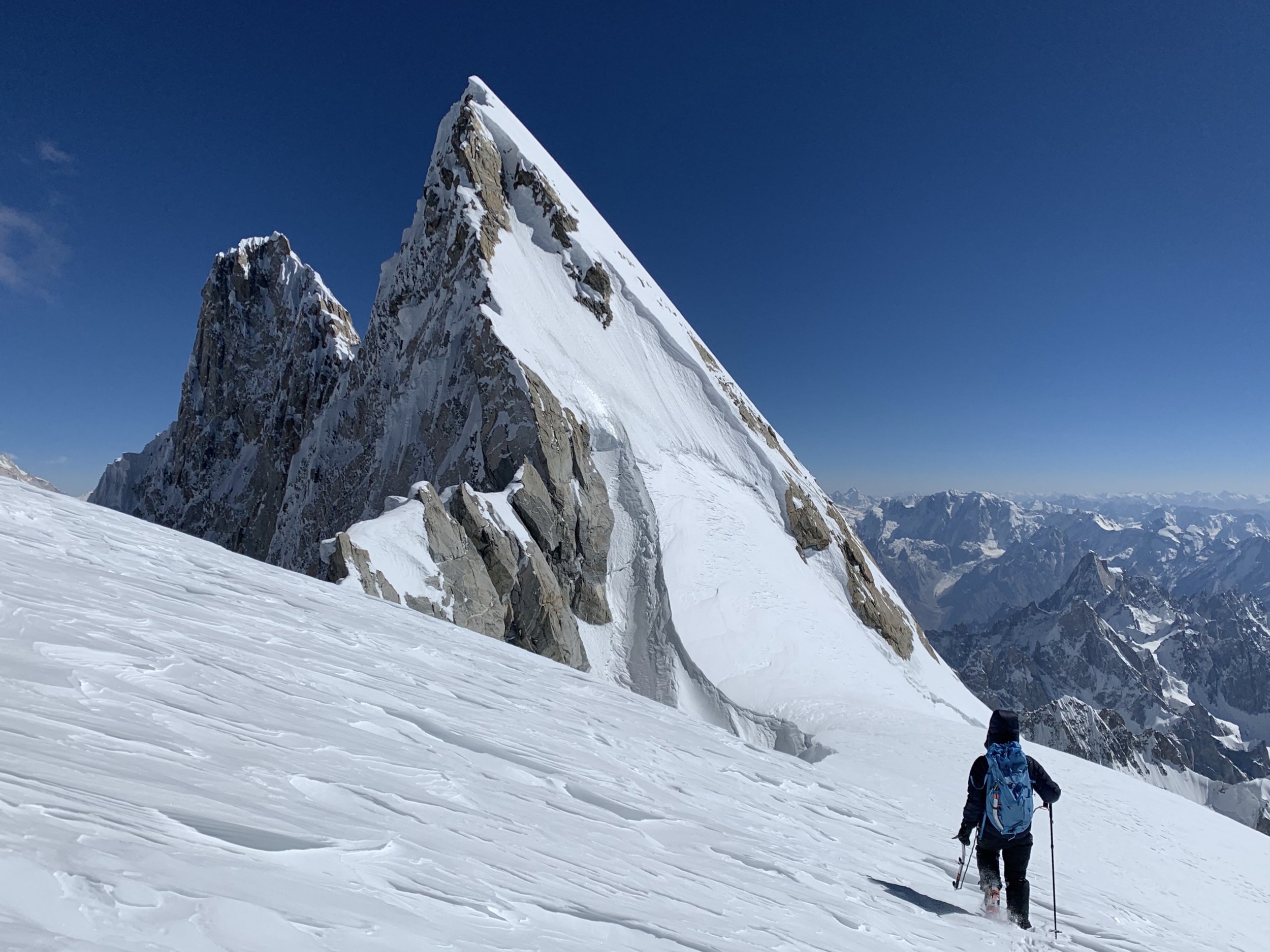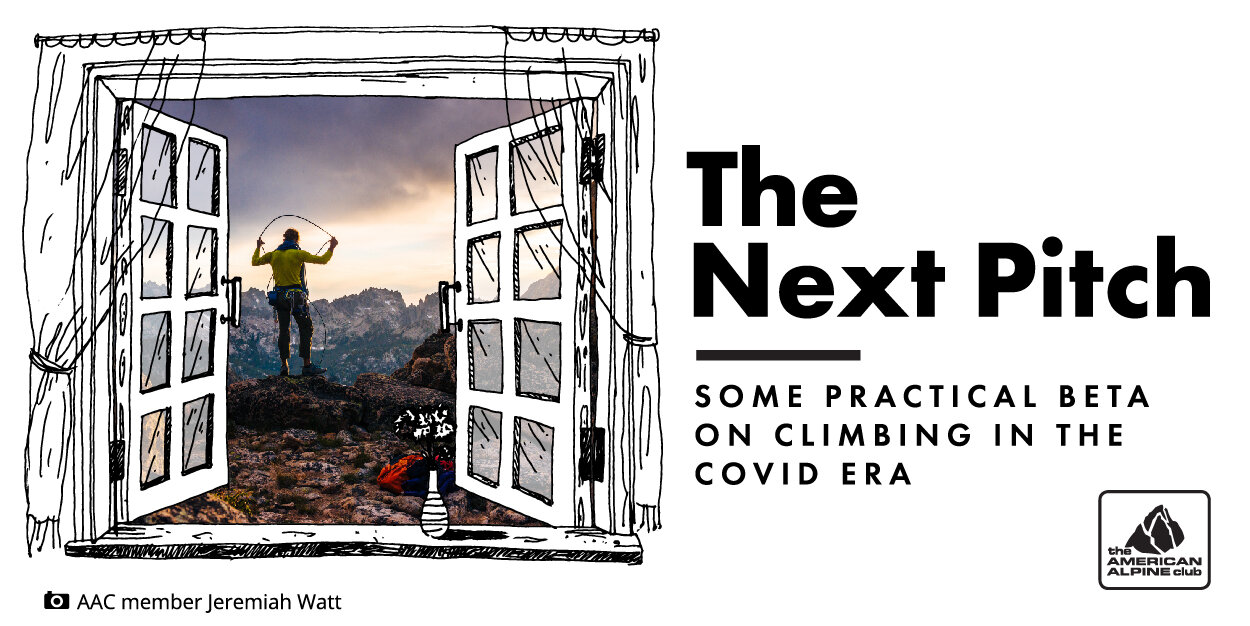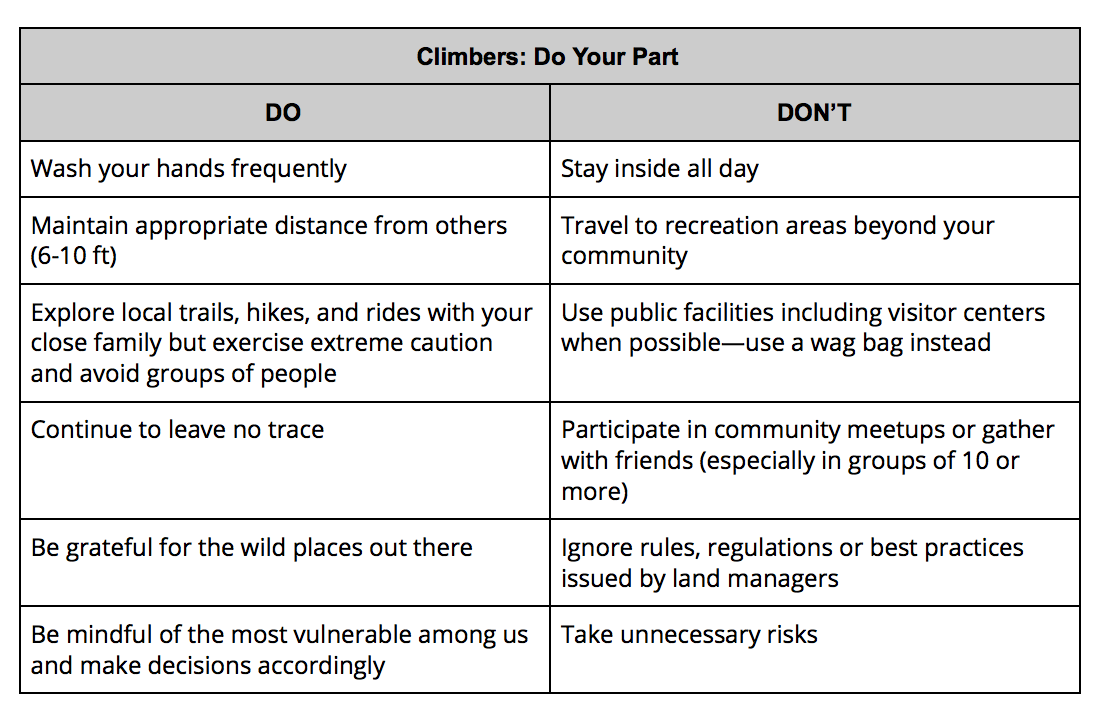Sal Marino, Janet Robertson, Dave Robertson, and Virginia Boucher in the Minarets, 1956. Courtesy of the American Alpine Club Library
Virginia Boucher
May 26, 1929 – March 9, 2025
It is with great appreciation that the American Alpine Club honors and celebrates the life of Virginia (Ginnie) Boucher—an unsung hero in the Club’s history.
Virginia Boucher climbing at the Garden of the Gods, 1948. Courtesy of the American Alpine Club Library
Virginia Boucher was the chair for the AAC Library Committee for a decade, and a driving force in introducing best practices to the AAC Library from the 1990s onward—including online access to the AAC’s library catalog, expansion of library staff, and implementing interlibrary loans in this highly niche space of mountaineering libraries and literature. Boucher was also instrumental in the physical move of the AAC Library from the AAC’s original Clubhouse in New York to its current location among the mountains of Golden, Colorado.
Boucher received the 2005 Angelo Heilprin Citation from the AAC for exemplary service to the Club, thanks to her transformational leadership at the AAC Library. Not only did her leadership bring the full force of library science to bear on this now world-renowned library and archive, but she also helped steward the acquisition of many pieces of the John M. Boyle Himalayan Collection and the Nicholas B. Clinch Collection, two keystone collections in the AAC’s current holdings.
In the notes announcing her award of the Heilprin Citation, the Award Committee shares some tidbits that suggest that Boucher wasn’t just the bookish type—she also had a flair for adventure. The committee notes that she and her husband, Stanley Boucher–a lifetime member of the AAC—were known for their unplanned night descents, and had a hilarious story about fighting off porcupines in the San Juans. She climbed the Grand Teton, Rainier, and many of Colorado’s mountains, and in her early years started off her climbing at the Garden of the Gods in Colorado Springs.
Sal Marino, Virginia Boucher, and Janet Robertson in the Minarets, 1956. Courtesy of the American Alpine Club Library
Boucher’s extensive impact as a volunteer for the AAC’s Library Committee was fueled by her love for the mountains and her calling as a librarian. But by the time she was serving on the committee, she had left climbing behind her. In her autobiography, she writes of this part of herself: “I know a number of those who have ‘summited’ Mount Everest…those who are addicted to boulders, and a few such as myself who climb [only] in our memories.”
But even so, climbing was a part of her history and identity, and after shepherding the AAC Library into the world-class institution it is today, she recalls how her volunteer involvement with the AAC Library brought her full-circle in her career: “I have drawn upon my special library experience…to give the best advice I can to this emerging and unique library… And finally, I have returned to my beginnings; I shelve books once again.”






